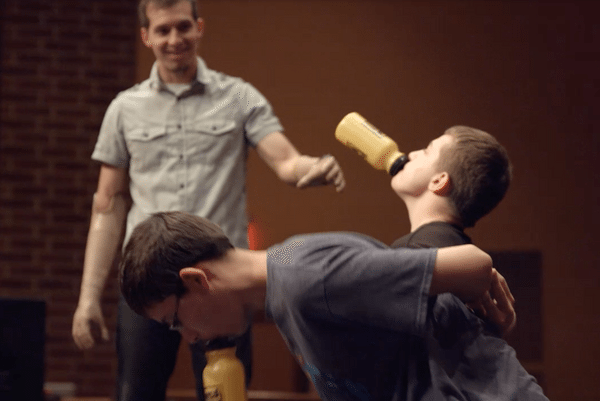Everyone has heard the statistics; depression, suicide, drug use, violence, and dropout rates are all on the rise among the youth in our society. No longer bound by any specific social or ethnic groups these issues permeate through teenage groups everywhere. It appears that the younger generation has lost their way. Why is this happening?
One line of thought relates to role models and, in specific, the lack of positive role models in many teenagers' lives. In the past families typically remained close-knit, providing their children with an environment full of family members acting as role models. However, with high divorce rates and globalization, families no longer live within the same area. Younger and older generations do not experience the close bond that was typical in the past. When parents were not around, there were teachers. Parents respected the teachers and taught their children to respect them as well. Teachers often acted as those positive role models, teaching their students about other strong individuals who changed their worlds from across the centuries. Sadly, teachers no longer hold that same status in our society, sometimes justly, sometimes not.
How does a lack of role models affect teenagers?
 Role models demonstrate the importance of careers, education, dreams, always doing your best, and not listening to the negative influences in your life. They illustrate how maintaining values, treating others fairly, and accepting differences are positive attributes. As humans, we learn by modeling those with influence in our lives. This modeling behavior teaches younger generations strategies for overcoming obstacles, strategies to recognize their own self worth and strategies for dreaming big and striving for their goals. However, not all role models exhibit strong, positive qualities.
Role models demonstrate the importance of careers, education, dreams, always doing your best, and not listening to the negative influences in your life. They illustrate how maintaining values, treating others fairly, and accepting differences are positive attributes. As humans, we learn by modeling those with influence in our lives. This modeling behavior teaches younger generations strategies for overcoming obstacles, strategies to recognize their own self worth and strategies for dreaming big and striving for their goals. However, not all role models exhibit strong, positive qualities.
Unfortunately, while many teens lack positive role models, they are an abundance of negative ones. In lieu of strong, positive relationships with adults in their lives, teenagers turn to television and social media. Here they learn that looks are of utmost importance and if a girl does not look like a supermodel or a boy is not a star athlete then they are inferior. Feelings of inferiority often lead to depression. Depression has become the most common mental health ailment among teens in the United States. Depression can lead to substance abuse, risky relationships, or complete withdrawal from relationships, and feelings of self-loathing and even suicide.
Social media also brings bullying into prominence in many lives. Bullying incessantly tears down self-esteem and self-worth, leaving its victims feeling powerless and hopeless. In trying to find ways to deal with the situation, the victims often turn to alcohol, drugs, and various forms of self-destruction. Without positive role models, those close relationships with adults that they trust and can talk to, teenagers can spiral ever downward into that pit of depression, leaving life-altering scars.
Solution: Youth Motivational Speaker
 However, one bright light is shining through the darkness, the youth motivational speaker. Schools and other organizations are bringing in speakers to provide a positive role model. These speakers, through their life experiences, are able to model for others that it is possible to break through barriers and achieve success. They can model the benefits of staying in school, of not giving in to your fear or to peer pressure. If you delve into the background of these speakers, somewhere, somehow, a role model stepped in. These role models come in all shapes and sizes, from family members to teachers, to coaches, or even complete strangers.
However, one bright light is shining through the darkness, the youth motivational speaker. Schools and other organizations are bringing in speakers to provide a positive role model. These speakers, through their life experiences, are able to model for others that it is possible to break through barriers and achieve success. They can model the benefits of staying in school, of not giving in to your fear or to peer pressure. If you delve into the background of these speakers, somewhere, somehow, a role model stepped in. These role models come in all shapes and sizes, from family members to teachers, to coaches, or even complete strangers.
Brad Hurtig is one such youth motivational speaker. His role model was his football coach who, after Brad lost both hands in an accident, told Brad, "If you're thirsty enough, you'll find a way". Brad overcame his obstacles, led his high school football team as a starting linebacker, and won all-state honors. He now speaks to youth everywhere, acting as a role model, demonstrating that there is always a way.


